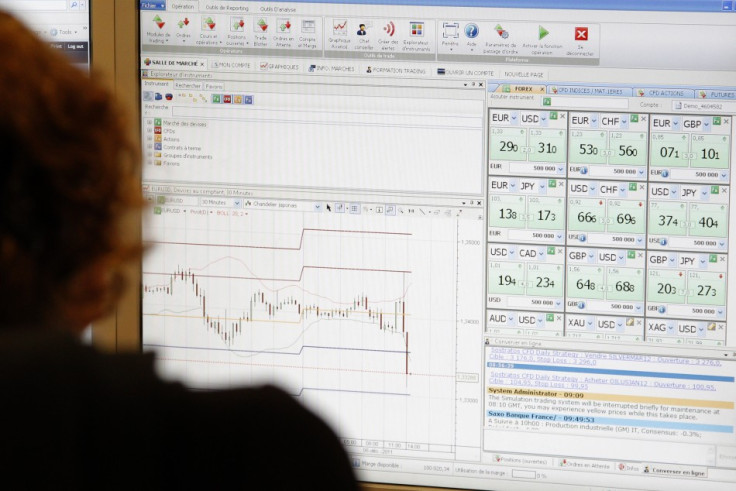Bond Market Referendum Points to Deepening European Crisis

Europe's debt crisis, never far from the surface, was once again centre stage Thursday as investors continue to vote with their euros in rejecting the patchwork approach to solving the issue of over-borrowed, under-expanding economies.
Investors were pressed find space for another €13.5bn in debt as officials from France and Spain tapped the capital markets in five separate bond auctions as part of the ongoing process to fund persistent current account deficits. But the session's relatively smooth sales were quickly overshadowed by nervous bond traders, grim economic data and the looming political debates in France that could derail the delicate truce currently observed between Europe's lenders and the government's they're funding.
Bond markets are often considered - at least amoung those in the profession - as a daily referendum on the government. Yields rise and fall largely in concert with market expectations of their ability to hold down deficits, deliver economic growth and if not harness, at least manage inflation expectations. It speaks volumes to know that investors demand an extra 3.5 percent in extra yield, or spread, to hold Spanish two-year government bonds instead of two-year German Schatz, based on auction prices for the two securities this week.
But while Spain's economic and political difficulties are well-reported, and easily evident in the bond market's prose, it was more of a surprise Thursday to see investor reaction to French government debt after its €7.97bn auction earlier this morning.
No sooner had France's Tresor tucked away the paperwork on its two, three and five year bond sales, which drew more than €3 in bids for every €1 on offer, did rumours surface of a potential downgrade of the country's coveted triple-A debt rating. Rapid denials from French officials - and a quasi-public statement from France-based ratings company Fitch - were enough to tame the market movements, but not enough to quiet the conversation surrounding the reasons for why the rumour was so easy to believe.
France's economy, while not quite in technical recession territory, is only expected to grow around 0.1 percent this year. Unemployment sits, at least officially, at 10 percent, but spikes much higher outside of Paris and beyond. Public sector debt stands at 56 percent of GDP, around 10 percent higher than the OECD average, while overall debt to GDP is much closer to 85 percent.
France's banks are amoung the most leveraged (debts related to assets) in the world and hold a collective $617bn in debts from Portugal, Ireland, Greece, Spain and Italy, according to the Bank for International Settlements, more than Britain and the United States combined.
Francois Hollande, the leader of France's Socialist Party, leads incumbent Nicolas Sarzoky in most polls going into the initial round of voting. His pledge to balance France's decades-long deficit by 2017 - a year longer than Sarzkoy's plan - has been met with considerable scepticism from international investors given his commitment to a 75 percent top rate of income tax and a raising of the nation's minimum wage. What may be more troubling, however, is the fact that Hollande's popularity seems to have risen in line with his anti-bank, anti-business rhetoric, suggesting to many that, should he emerge victorious next month, his grip on the country's finances could weak as he seeks to placate the electorate that selected him.
n the daily referendum that is the bond market, the implication seems clear: the extra yield, or spread, demanded by investors to hold French government bonds instead of German Bunds was around 10 basis points higher, at 148 basis points, throughout most of the session. Similar spreads for Italian government debt were also on the rise, climbing 12 basis points to 398 basis points by mid-day London time. Bund futures advanced 42 ticks to a record high 140.78.
© Copyright IBTimes 2025. All rights reserved.





















